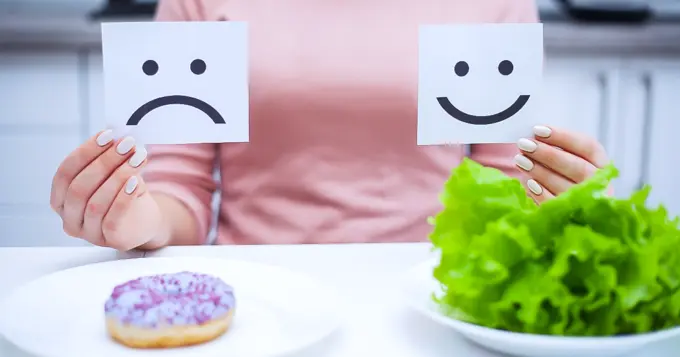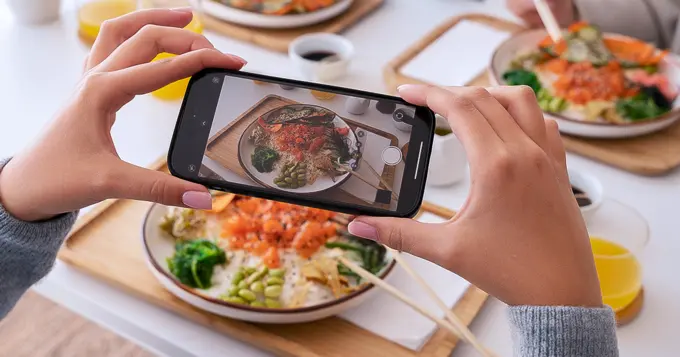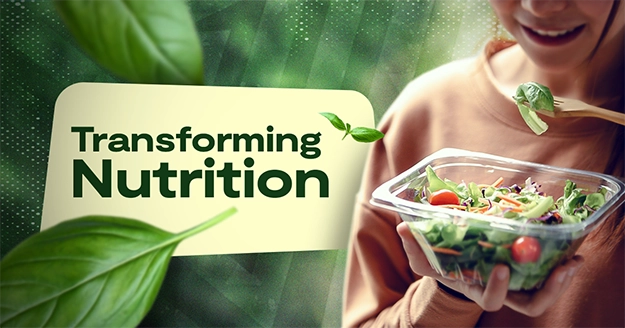A person’s relationship with food frequently develops during childhood or adolescence. You are far more likely to have an unhealthy connection with food as an adult if, for instance, those who were responsible for raising you taught you to have one or if you used food as a coping mechanism when you were younger.
Having unrestricted permission to eat food items that make you feel good both physically and mentally is a necessary component of a healthy relationship with food.
But let’s be honest here: It’s hard to build a healthy relationship with food
If you’ve gone through a terrible experience or lost someone close to you, you may have formed an unhealthy relationship with food. Similarly, if you have body image problems, you might use food as a kind of self-control.
That’s why, in this post, let’s take a step together toward building a healthy relationship with food.
But first,
Why do we need to build a healthy relationship with food?
Making “perfect” eating choices is less stressful if you have a positive relationship with food.
Having a positive relationship with food generally enables us to honor our bodies and our hunger without feeling bad about our decisions. We frequently need to work on and reevaluate that relationship throughout our lives as we grow and develop.
How to have a healthy relationship with food?
Stop categorizing food
Food is not the enemy. Believing that certain foods are the enemy and that you “need” to follow harmful diets to be healthy is NOT healthy. Restrictive diets urge you to work against your natural food intuition and encourage a negative attitude toward food, which frequently results in self-doubt regarding food.
Not only do you need to stop thinking that food is the enemy, you have to stop thinking of foods as good or bad in general. You’ll always feel guilty and ashamed if you always feel like you are consuming “bad” food whenever you eat for pleasure. Additionally, you’ll feel like eating is a chore if you always feel like you “should” be consuming items that provide nutrients.
Instead of focusing on all the ways that food might harm you, think about what it can do for you:
- By delivering glucose to the bloodstream, carbohydrates can make you feel more energetic.
- Fats can help with hormone functions, immune support, and organ protection.
- Proteins can support all of your body’s structural elements and help you gain muscular mass.
Consistently prioritize both nourishment and enjoyment
Both enjoyment and nourishment must take priority if we are to cultivate our physical, mental, and emotional well-being.
Nourishment means foods that physically nourish your body. Enjoyment means foods that make you happy without feeling guilty.
You’ll be well on your way to altering your relationship with food if you can make sure the majority of your meals and snacks prioritize both of these elements. You won’t feel like you’re being deprived or even guilty over eating. You’ll start to enjoy and feel at ease with your food!
Listen to your body
Gaining a better understanding of your body can be quite beneficial while attempting to heal a bad relationship with food.
It’s safe to say that some of us have buried ourselves in foods because of certain emotions or due to stress, which is acceptable. But, it may be necessary to take a step back and assess yourself whenever you discover that food frequently serves as a soother of emotions and stress rather than to satisfy hunger.
On the same note, knowing your body’s cues when you are physically hungry is crucial, such as having a rumbling stomach or getting dizzy because of hunger. Your body’s hunger signals let you know what it needs. Your cues could indicate that the body needs more energy or that the amount of food you consumed was too much.
Practice mindful eating
How to change your relationship with food? Know how to practice mindful eating. Remind yourself that eating isn’t a chore, a job, or a way to exercise control. It provides nourishment for the body, allows one to experience or spread culture, and does so much more. It also teaches you how to differentiate between actual and emotional hunger in order to avoid overeating and promote increased awareness of your food choices.
Basically, mindful eating means:
- Eating slowly and without getting distracted.
- Listening to your body’s hunger cues and eating only until you’re satisfied.
- Knowing the difference between physical hunger and emotional hunger.
- Use your senses to enjoy the aromas, textures, and food flavors.
- Finding ways to cope with the guilt and anxiety about food.
- Eating for overall health and well-being.
- Noticing how food affects your feelings and body.
- Appreciate your food.
Remove The Food Rules
Don’t overthink foods. Eat this, not that, or this is right, this is wrong. That’s not a good way to start if you want to build a healthy relationship with food.
Food doesn’t operate that way, particularly if you want to have a healthy, fulfilling relationship with food. Food regulations are limiting and oppressive. They make you feel starved, stressed out, and perhaps even guilty.
You must abandon the food rules if you want to heal your relationship with food. Take a moment to pause whenever you find yourself following or even reciting a meal guideline.
Conclusion
Healing your relationship with food is definitely not easy. But it’s important to start somewhere. We hope this article helps you with how to have a healthy relationship with food and where to start.








